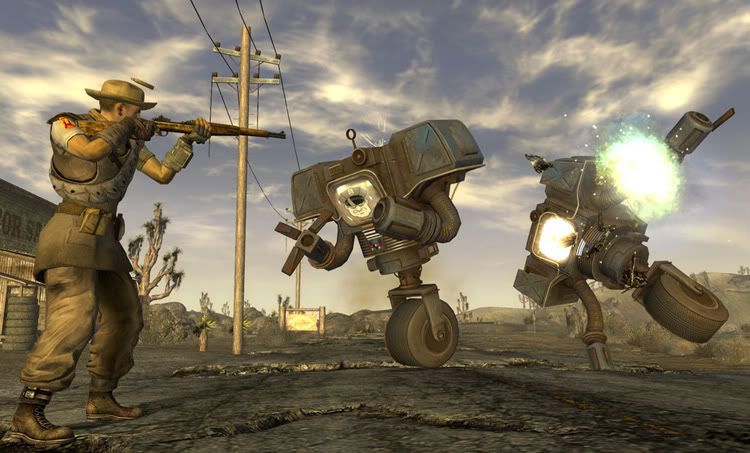This post has not been edited by the GamesBeat staff. Opinions by GamesBeat community writers do not necessarily reflect those of the staff.
They call me the Paragon of Justice: a pilgrim wandering the wasteland/galaxy laying waste to the bandit scum plaguing the land. A sense of justice floods over me as I rout a band of evil necromancers, and a tiny voice whispers in my ear, "You are a good person."
Am I? Yes, I suppose I am.
What have I learned, though? That killing bad people elevates my avatar to a place of moral sophistication?

One man's exterminator is another mutant's murderer.
That's a hard sell. I'm not accountable for my paladin's actions…neither the good nor the bad. Killing that law-abiding peasant will not result in my incarceration by the Canadian government, nor will saving his village earn me the Nobel Peace Prize.
So how do the actions of your avatar reflect back on you, the player? Can we learn anything from our second lives?
If anything, we learn that doing good is not its own reward.
A rare item, an enchanted shield, or a tidy sum of gold awaits those who help farmer Hrothgar.
But video games are fibbing to us.
The real world rarely praises or rewards the paragon choice. You don't get a new sword for picking up the tab for a haggard single mother at the grocery store. We become agitated when that homeless man doesn't thank us for our spare change.
Instead, gaming calls us back to the virtual practice of righteousness…where altruism is properly appreciated and free from difficulty and pain. My charity remains strictly in-game.
But then I hear stories of a college student overcoming addiction with Gears of War or the tale of a woman blessing another family with secondhand video games. And suddenly I remember what games have been teaching us all along: Video-game righteousness doesn't make me a good person, but it reminds me that I have the power to be one.
